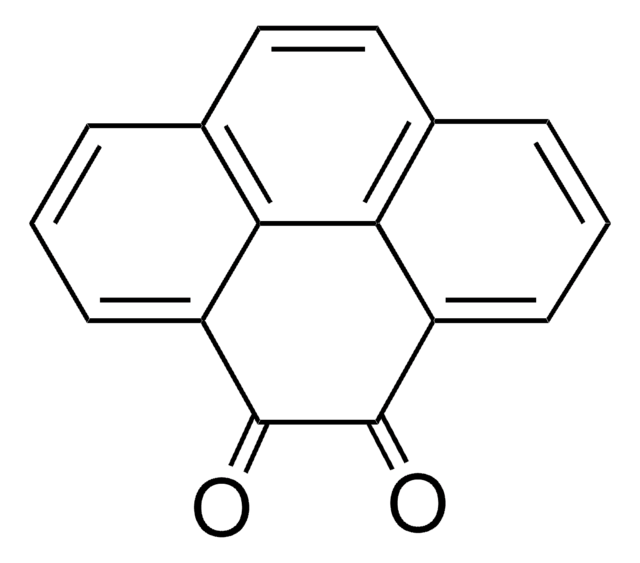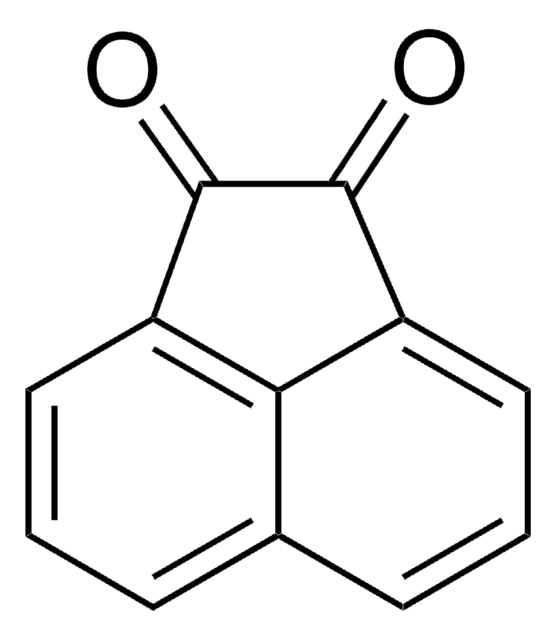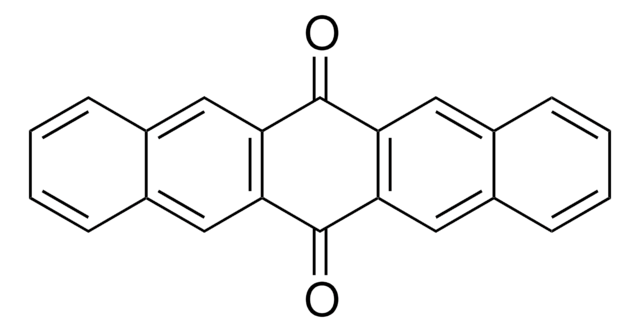275034
9,10-Phenanthrenequinone
95%
Synonyme(s) :
9,10-Phenanthrenedione
About This Item
Produits recommandés
Niveau de qualité
Pureté
95%
Forme
powder
Pf
209-212 °C (lit.)
Chaîne SMILES
O=C1C(=O)c2ccccc2-c3ccccc13
InChI
1S/C14H8O2/c15-13-11-7-3-1-5-9(11)10-6-2-4-8-12(10)14(13)16/h1-8H
Clé InChI
YYVYAPXYZVYDHN-UHFFFAOYSA-N
Informations sur le gène
human ... PTPN1(5770) , PTPRC(5788)
Vous recherchez des produits similaires ? Visite Guide de comparaison des produits
Description générale
Application
Mention d'avertissement
Warning
Mentions de danger
Conseils de prudence
Classification des risques
Aquatic Acute 1 - Eye Irrit. 2
Code de la classe de stockage
11 - Combustible Solids
Classe de danger pour l'eau (WGK)
WGK 3
Point d'éclair (°F)
473.0 °F
Point d'éclair (°C)
245 °C
Équipement de protection individuelle
dust mask type N95 (US), Eyeshields, Gloves
Faites votre choix parmi les versions les plus récentes :
Déjà en possession de ce produit ?
Retrouvez la documentation relative aux produits que vous avez récemment achetés dans la Bibliothèque de documents.
Les clients ont également consulté
Notre équipe de scientifiques dispose d'une expérience dans tous les secteurs de la recherche, notamment en sciences de la vie, science des matériaux, synthèse chimique, chromatographie, analyse et dans de nombreux autres domaines..
Contacter notre Service technique












![6H-Benzo[cd]pyren-6-one BCR®, certified reference material](/deepweb/assets/sigmaaldrich/product/structures/121/467/11adf097-4f11-4b40-a73f-910f36624e9c/640/11adf097-4f11-4b40-a73f-910f36624e9c.png)

